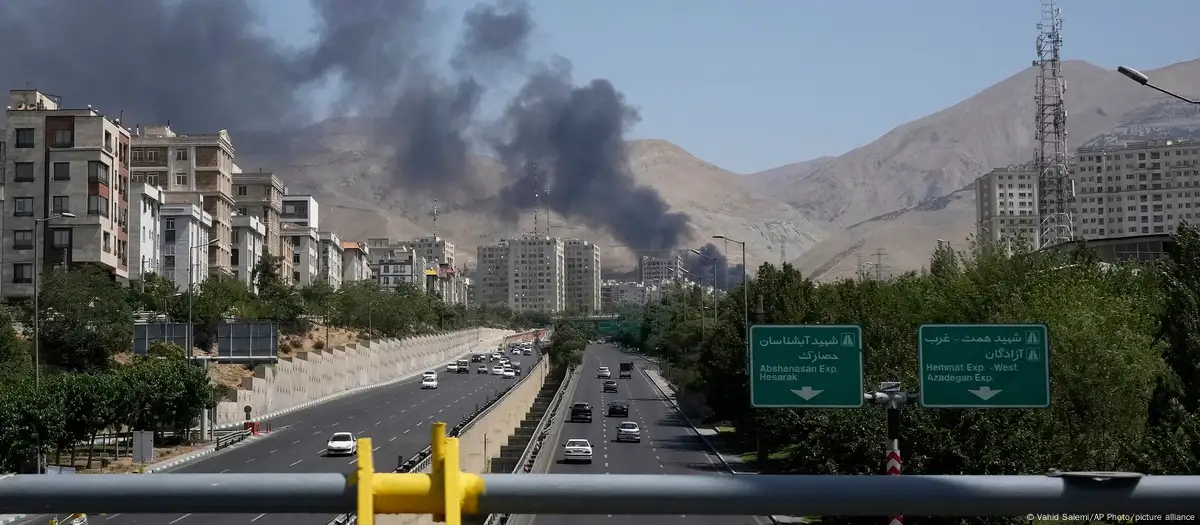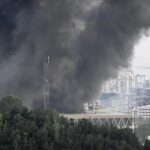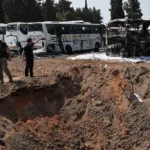
The Israeli military announced Tuesday that it had killed a high-ranking Iranian military official in a targeted strike on Tehran, marking a dramatic escalation in the ongoing confrontation between the two regional powers; while Iran has warned Israel of further strikes after it launched a barrage of kamikaze drones toward different Israeli cities.
The Israel Defense Forces (IDF) said General Ali Shadmani, newly appointed head of Iran’s Khatam al-Anbiya Central Headquarters, a key command center within the Islamic Revolutionary Guard Corps (IRGC), was killed during overnight strikes on western Iran, reports dw.com
According to a statement released on social media platform X, the IDF said it had carried out “several extensive strikes” on Iranian military infrastructure, including missile storage and launch facilities, surface-to-air missile systems, and UAV storage sites. The statement was accompanied by video footage allegedly showing successful hits on various targets.

In response, Iranian forces launched a series of drone strikes against Israel, which General Kiumars Heydari, commander of Iran’s ground forces, claimed had successfully hit multiple targets.
“The enemy should know that a new wave of massive attacks… with new and advanced weapons has begun and will intensify in the coming hours,” Heydari was quoted as saying by IRNA, Iran’s state-run news agency.
Overnight, missile sirens sounded across Israel, including in Tel Aviv, Jerusalem, and Herzliya. Israeli media described a “rain of missiles” launched by Iran, many of which were reportedly intercepted.
The IDF later lifted shelter-in-place orders issued earlier in the day but confirmed that Iranian missiles had caused material damage in the Tel Aviv area. No injuries were reported, according to Israeli police.
A military spokesperson confirmed that air force units were actively engaged in intercepting and neutralizing threats, adding that additional strikes may be necessary.
As the Israel-Iran conflict enters its fifth day, fears are mounting that the region is on the brink of a broader war—one that is drawing in global powers, endangering civilians, and straining diplomatic ties.
Calls for de-escalation from China and others have yet to result in meaningful restraint. The world watches with growing concern.
Meanwhile, U.S. President Donald Trump warned residents of Tehran to “immediately evacuate” the city, raising alarm about a potential widening of the conflict. The warning, posted to Trump’s Truth Social account, came shortly after Israel had issued similar alerts to civilians in northern Tehran.
China quickly rebuked Trump’s remarks, accusing him of “fanning the flames” of conflict. Foreign Ministry spokesperson Guo Jiakun said on Tuesday, “Fanning the flames, pouring oil, making threats and mounting pressure will not help to promote de-escalation… but will only intensify and widen the conflict.”
China also urged all parties, particularly those with influence over Israel, to act responsibly and prevent the situation from spiraling further.
Separately, the Chinese Embassy in Israel advised its citizens to leave the country “as soon as possible”, citing increasing civilian casualties and worsening security conditions.















